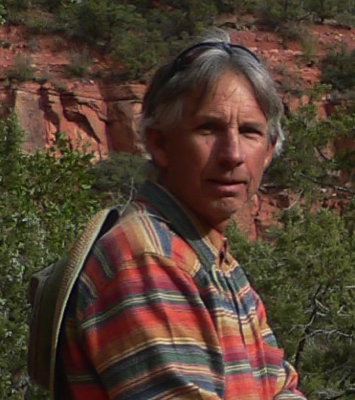
The LOSG
Working on Solutions for our Community
Secretary: Elaine Watson
Web Builder: Dennis Billings
Dennis moved to Los Osos in 1980 to obtain a teaching credential at Cal Poly. He was fortunate enough to land a teaching gig in Atascadero and recently retired after 34 years of teaching.
Who We Are:
Our Mission:
Our Current Focuses:
Disclaimer and Use of the Website
Members
About Us
The Los Osos Sustainability Group (LOSG) is a group of homeowners in Los Osos who are dedicated to supporting and pursuing sustainability goals and initiatives for the community.
To help protect the resources within the Los Osos community and present guidelines and recommendations for the use of those resources in a sustainable manner. To advocate for policies and decision making that ensure the long-term sustainability of the Los Osos Groundwater Basin, the sole source of water for the Los Osos Community, area farms, and groundwater-dependent environmentally sensitive habitat.
Since the LOSG formed in about 2007, it has focused primarily on saving the Los Osos Water Basin, which faces multiple threats from seawater intrusion, climate change impacts, and impacts from added development in the area. It also is undergoing major hydrologic changes as it adjusts to the replacement of thousands of individual septic systems, a dispersed source of recharge, with recharge primarily in one location. Major shifts in pumping are also occurring to address seawater intrusion.
Although many people are familiar with the high nitrate issue in the Basin's upper aquifer, nitrates are being addressed by the recently constructed Los Osos Water Recycling Facility. The most significant threat to the Basin is the on-going seawater intrusion problem from years of over pumping. Because the County would be able to approve much more development with its proposed Los Osos Community Plan, before the Basin is shown with clear physical evidence (chloride and water level data) that seawater intrusion is stopped and reversed long-term, the LOSG has decided to continue to advocate for Basin management and land use policies that prioritize reversing seawater intrusion as soon and as cost-effectively as possible.
We are also concerned that the Community Plan and related planning documents, including the Habitat Conservation Plan, do not adequately protect environmentally sensitive habitat (ESHA) or address green house gas emission impacts. The proposed 30% of additional development will result in many thousands of vehicle trips to commercial centers in the County since the plan does not provide for a significant increase in local medical and other services that could reduce trips.
Currently, none of LOSG's members are hydro-geologists or have backgrounds in water related sciences. Our method for writing comments and formulating opinions and positions on Basin-related policies and practices is to read, question, and apply critical thinking to official information provided by the County, the Basin Management Committee (BMC), and other official and/or expert sources. Occasionally, we will also hire professionals for expert analyses or to assist us with issues and actions. We cite the sources we use and explain the bases for our positions for readers to check and weigh using their own critical thinking skills.
Despite our best efforts--because the issues are very complicated and there is a good deal of Basin-related information published--we may get something wrong. If we're presented with credible evidence indicating that any of our statements or positions may be inaccurate or not supportable; we will verify the evidence and change our statements or positions to agree with the science and/or other factual material. We invite and appreciate constructive input.
As clear from our mission statement, purpose, and goals--and clear throughout the website--the LOSG is an advocacy group for the sustainability of the Basin as the sole water source for the community. Therefore, we have a point of view toward policies, plans, and programs that will protect, preserve, and restore the Basin even when actions may exceed some excepted or traditional water management or land-use policies and practices. We believe the value of the Basin to the area as an irreplaceable water source justifies an approach that errs on the side of protecting the Basin. The Coastal Commission and various experts have agreed that a precautionary approach to Basin management, which maximizes its health and sustainability, is the best way to proceed.
Please note that we will be updating our website from time to time to keep up with new information and may provide further detail or otherwise refine our positions or modify our positions as our understanding of issues evolves.
Chair: Patrick McGibney
Patrick grew up in Carmel, but moved to Baywood Park in 1973 to complete his graduate studies at Cal Poly. At that time Los Osos/Baywood was considered to be “out in the boonies.” With one stop sign (on the corner of 9th and LOVR) and a population of less than 3000 people, the tap water was so sweet others came from all over to fill their water containers. However, the building frenzy of the 1980’s led to a rapid deterioration of water quality and availability, a moratorium, and eventually, a sewer. Patrick has seen a lot of changes over the years, and has tried to be a part of the positive ones. We live in a very special and unique area, one that now has an over-drafted water basin that we’re at risk of losing, due to seawater intrusion. If we lose our only water supply, we lose our community. Patrick welcomes your help in standing up to protect our water, our community, and our habitat.
